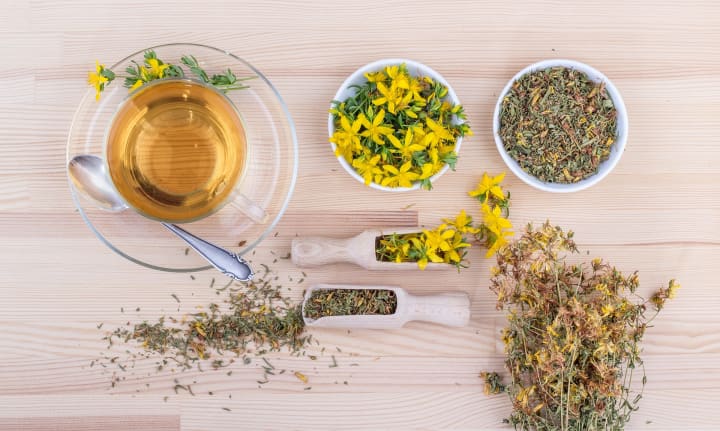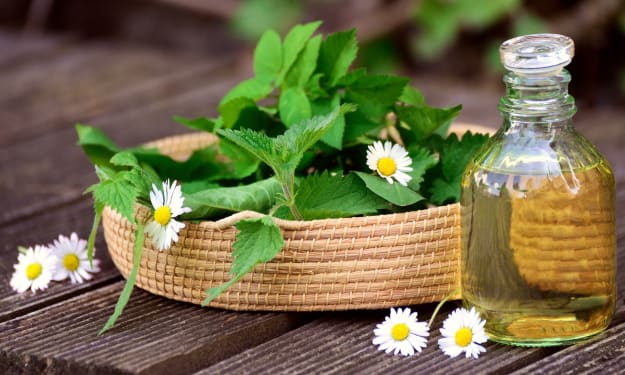
Introduction
Welcome to our comprehensive guide on utilizing homegrown medicinal plants for herbal remedies. In this article, we'll delve into the incredible benefits of using plants from your backyard to address various health concerns. Herbal remedies have been employed for centuries, and their effectiveness is well-documented. By exploring nature's pharmacy right at your doorstep, you can harness the power of these potent plants for your well-being.
Understanding the Power of Homegrown Medicinal Plants
Embracing Nature's Bounty:
Our ancestors relied heavily on nature's gifts to treat ailments and maintain overall health. Today, amidst a fast-paced world, it's essential to reconnect with the natural healing properties of homegrown medicinal plants. These plants are easily accessible, cost-effective, and can be grown with minimal effort.
Chemical-Free Solutions:
One of the significant advantages of using homegrown medicinal plants is the absence of harmful chemicals. Unlike pharmaceutical drugs, which may come with adverse side effects, herbal remedies offer a gentler, safer alternative. This makes them an appealing option for those seeking holistic and non-invasive treatments.
Top 10 Medicinal Plants You Can Grow at Home
Lavender (Lavandula angustifolia):
Known for its soothing aroma, lavender is a versatile herb that aids in relaxation and sleep. It can also help alleviate headaches and stress-related tension.
Aloe Vera (Aloe barbadensis miller):
Aloe vera is a popular succulent with remarkable healing properties for skin conditions such as burns, cuts, and sunburns. It also supports digestion and boosts the immune system.
Peppermint (Mentha piperita):
Peppermint leaves make an invigorating tea that aids digestion, relieves bloating, and reduces nausea. Its essential oil can also ease headaches and muscle pain.
Chamomile (Matricaria chamomilla):
Chamomile flowers are well-known for their calming effects. A cup of chamomile tea before bedtime can promote better sleep and relaxation.
Echinacea (Echinacea purpurea):
Echinacea is a powerful immune booster that can help your body fend off infections and reduce the severity of cold and flu symptoms.
Calendula (Calendula officinalis):
Calendula, or marigold, has anti-inflammatory and antiseptic properties, making it an excellent addition to healing balms and salves for minor wounds and skin irritations.
Rosemary (Rosmarinus officinalis):
Rosemary is not only a delightful culinary herb but also beneficial for memory and concentration. It can be used topically for scalp health and to stimulate hair growth.
Thyme (Thymus vulgaris):
Thyme has potent antimicrobial properties and can be used as a natural disinfectant for minor cuts and scrapes. It is also effective in easing respiratory issues.
Lemon Balm (Melissa officinalis):
Lemon balm leaves have a lemony scent and are excellent for reducing anxiety and promoting relaxation. It also aids in digestion and may help with cold sores.
Comfrey (Symphytum officinale):
Comfrey leaves are rich in allantoin, a compound that supports skin healing. It is commonly used in salves and poultices for bruises, sprains, and minor fractures.
Click here to start your journey to natural health.

Harvesting and Preserving Homegrown Herbs
To maximize the potency of your homegrown medicinal plants, it's crucial to harvest them at the right time and preserve them properly. Here are some essential tips:
Timing is Key:
Harvest herbs just before they bloom, as this is when their essential oils are most concentrated. Morning, after the dew has dried, is the ideal time for harvesting.
Gentle Handling:
When harvesting, use sharp and clean garden shears to avoid damaging the plants. Handle the herbs gently to preserve their quality.
Drying Herbs:
The most common method of preserving herbs is by air-drying. Tie small bundles of herbs together and hang them upside down in a warm, well-ventilated area.
Storage:
Once the herbs are thoroughly dried, store them in airtight containers away from direct sunlight. Label each container with the herb's name and date of harvesting.
Crafting Your Own Herbal Remedies
Infusions and Decoctions:
Infusions involve steeping herbs in hot water, much like making tea. Decoctions, on the other hand, require boiling herbs in water to extract their medicinal properties.
Herbal Oils:
Create herbal-infused oils by combining dried herbs with carrier oils like olive or coconut oil. Let the mixture sit for a few weeks, strain, and use for massage or skin care.
Salves and Balms:
Combine herbal-infused oils with beeswax to create healing salves and balms for topical applications. These are excellent for soothing skin irritations and minor wounds.
Integrating Herbal Remedies into Your Lifestyle
Consultation with a Herbalist:
If you're new to herbal remedies, consider consulting a professional herbalist who can guide you on the best plants and preparations for your specific needs.
Educate Yourself:
Take the time to research and understand the properties of different herbs. Knowledge is key to using herbal remedies effectively and safely.
Start Small:
Experiment with a few herbs and remedies to find what works best for you. Begin with widely used herbs like lavender and chamomile before exploring less common ones.
Be Patient:
Herbal remedies often take time to show their effects. Unlike pharmaceuticals, they may require consistent use and patience for noticeable results.
Conclusion
Embracing the healing potential of homegrown medicinal plants is a rewarding journey that connects us to nature's abundant offerings. By incorporating these herbal remedies into our lives, we can promote wellness, enhance our health, and embrace a more natural approach to self-care. Remember, the key lies in understanding each plant's unique properties and crafting remedies that suit your needs best.






Comments
There are no comments for this story
Be the first to respond and start the conversation.